If you spend any time surfing the mangasphere, you don’t need me to tell you that Twin Spica is about a group of teenagers who are training to become Japan’s first astronauts. You probably know — or have heard from other readers — that it’s poignant. And you may have heard pundits declare it one of the best new series of 2010. (It made my best-of list.) Rather than re-hash plot points or tell you how awesome it is, therefore, I thought I’d share what I like best about Twin Spica: every volume makes me want to look up at the sky.
I’m not talking about the simple act of looking through a telescope or watching clouds drift in the wind — I’m talking about the way the act of looking at the sky makes me feel. Reflecting back on my childhood, that act elicited very specific emotions: the sky represented the future, a large canvas on which I could project my most cherished dreams of traveling to distant places, having adventures, and doing things that, from a six or eight-year-old’s perspective, seemed important. Kou Yaginuma clearly remembers that feeling from his own childhood, because his characters are at their most optimistic and thoughtful when they’re looking up at the sky and thinking about their own experiences.
There’s a lovely moment in volume six, for example, when Fuchuya’s grandfather tells six-year-old Asumi to cherish the memory of gazing up at the sky, as the sky will look different to her as she reaches adulthood. He explains:
You might as well spend your time looking up, at the sky. Me, I’ve spent decades staring up the sky in this town. I only thought the sky was very high when I was your age. When you’re old, it doesn’t seem quite that way. The sky you see as a kid is a lifelong treasure. I mean it. Value what you can see now, and only now.
Reading this passage reminds me of “Feldeinsamkeit” (“In Summerfields”), a beautiful piece of juvenilia from Charles Ives’ 114 Songs. The lyrics, taken from German poet Hermann Allmers, describe the experience of lying in a meadow on a summer’s afternoon and watching the sky. The sight of drifting clouds induces melancholy in his poem’s narrator, who — in typical nineteenth-century fashion — sees the clouds’ gentle, unfettered progress across the sky as a symbol of release from earthly burdens:
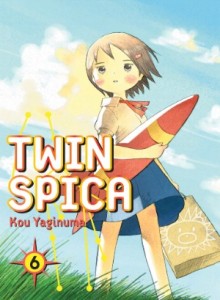 I’m resting quietly in tall green grass,
I’m resting quietly in tall green grass,
and cast my eyes far upwards;
around me crickets chirp unceasing,
the sky’s blue magically encloses me.
The beautiful white clouds float past
through the deep blue, like lovely silent dreams.
It is as if I had been long dead,
and flew in bliss with them through unending space.
Ives’ setting, by his own standards, is rather tame; there’s a running accompaniment figure that suggests fast-moving clouds, and a fleeting moment of bitonality, but it falls squarely within the nineteenth-century Stimmungslied tradition with its rounded binary form and gentle chromaticism. The song has an undeniably haunting quality, however. Its rapid modulation to harmonically distant key signatures and achingly sad melodic line suggest that the singer isn’t simply describing the act of watching clouds, as the lyrics alone might imply, but remembering what she was thinking and feeling as she did so.
That may sound like a minor distinction, but memory — or, more accurately, the act of remembering — is an important motif in the 114 Songs. “At the River,” for example, initially sounds like a straightforward rendition of “Shall We Gather At the River,” only to deviate from the melody as the singer “forgets” the proper tune, while “Memories” re-enacts a child’s enthusiasm at attending a concert. “In Summerfields” is less self-consciously modernist than either of these songs, but all three rely heavily on the illusion that the performer is reliving one of her own memories.
And that’s exactly the quality I find so compelling about Twin Spica: it’s a manga about living with vivid memories — some haunting, some happy — about reconciling past and present, about recognizing the value in both joy and pain, about negotiating the transition from youthful innocence to adulthood. In that scene with Fuchuya’s grandfather, we’re given a powerful reminder of just how much symbolic importance the sky holds for all of us, even if it doesn’t fill us with the same sense of wonder that it did when we were small.
Review copies provided by Vertical, Inc.
TWIN SPICA, VOLS. 5-6 • BY KOU YAGINUMA • VERTICAL, INC. • RATING: TEEN (13+)
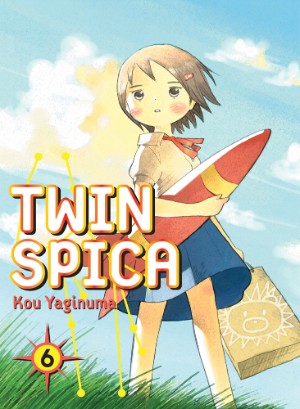
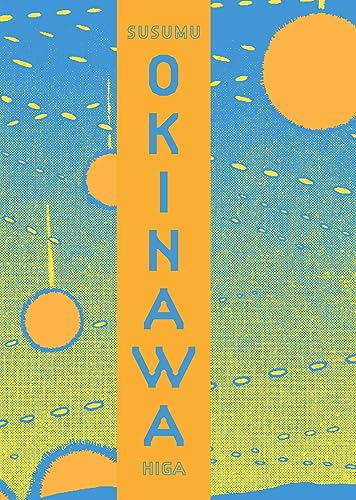
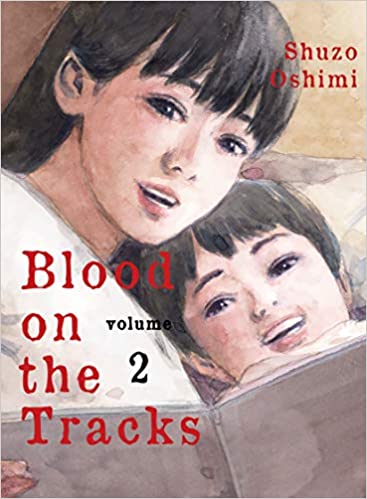
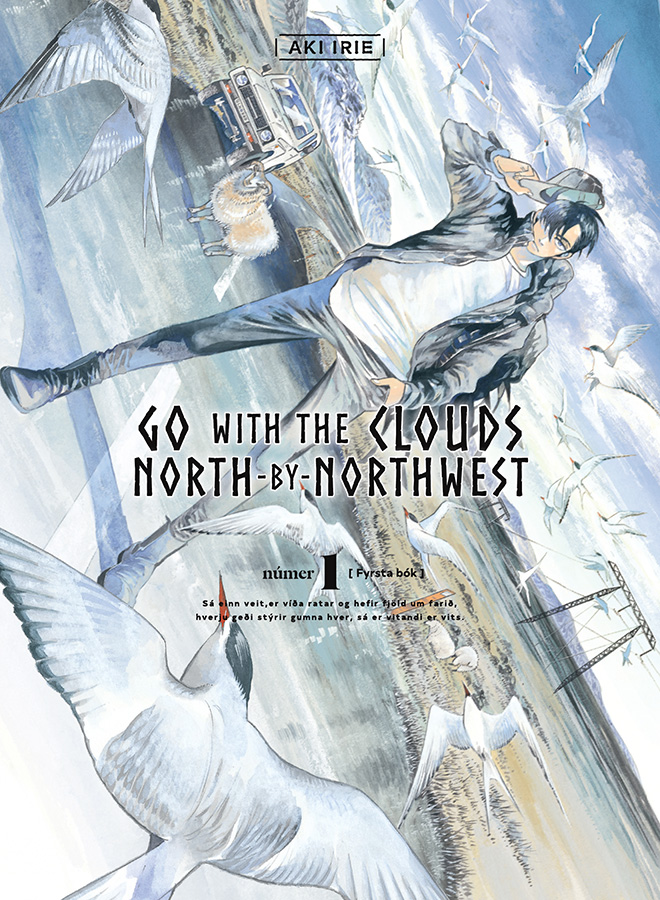
Khursten says:
While I haven’t read Twin Spica, I have watched the anime before in a cable before. Reading your review reminded me of the awesome ending song for the series “Miagete Goran Yoru Na Hoshi Wo” I think it was the perfect to capture this spirit of Twin Spica. If you have the time, catch the song here!
Katherine Dacey says:
Thanks, Khursten! I’ve avoided the anime because I don’t want the spell to be ruined by knowing how everything turns out. But I will definitely check out the music for “Miagete Goran Yoru Na Hoshi Wo.”
Wraith says:
The anime actually only goes as far as the beginning of volume 6, so you’re now past the point you can be spoiled by it. It was made well before the manga was finished, and it ends with a non-ending on the survival exercise.
The live action version is rather different. Heavily altered from the anime, but made as the manga was coming to an end, so it includes elements from all throughout the series. That one you should avoid until the manga is released here.
Katherine Dacey says:
Thanks for the tip!
Melinda Beasi says:
This is beautiful, Kate. And you know, I’ve never loved Ives, but the stunning comparison you draw here between his 114 Songs and Twin Spica makes me want to listen to his work with new ears. I want to listen to Ives and see the sky the same as when I read Twin Spica.
What a lovely, evocative review.
Katherine Dacey says:
I’m not a big Ives fan, either; I’ve always found his symphonic music too noisy and chaotic to really register as music, even though I know I’m supposed to think more highly of it. His songs, however, are a different story: I bought a recording of Jan DeGaetani performing highlights from the 114 Songs, and it really changed my opinion of Ives. I’m happy to burn you a disc, if you’re interested.
Aaron says:
I read the first two volumes than lost intrest what kind of bugs me is the kind of breathless prase this sereis gets from some bloggers (present company excluded). It just seems sometimes that bloggers live in this little bubble sometimes. But I just kind of lost intrest in it I just could’nt work up much enthusiasim it’s a good sereis but as I have said before I just think it has trouble finding an aduince and it’ll probablly be nothing more than a well loved cult hit.
Katherine Dacey says:
You’re right that Twin Spica hasn’t posted Naruto kind of numbers, but I don’t think it’s fair to dismiss it as a “cult hit.” It’s gotten favorable notices well outside the usual manga circles, especially in publications aimed at librarians. Librarians can play a major role in determining whether a book is a financial success or not, and given how many library journals have singled it out for phrase, I think it’s going to be with us for a long time.
As for your other point, yes, it probably seems like the entire mangasphere likes this series except you. I’ve been in the same position with other titles; I’m one of six people who doesn’t like Fruits Basket, for example. But I don’t interpret the near-universal praise for Fruits Basket as evidence of groupthink; I’m sure there are critics who have been swayed by their peers’ comments about FB, but most fans come by that favorable opinion honestly. The same goes for Twin Spica: I’m sure some folks are praising it because they think they’re supposed to, but they’re in a very small minority.
Aaron says:
@Kate you know what your’e probablly right I may have mis spoken also I didn’t use the term “cult hit” to be dissmissive. More in the sense that Twin Spica will have a small but devoted following much like how titles like I”s or Honey and Clover didn’t move massive numbers but still have a group of people that think highlly of it.
Katherine Dacey says:
And I hope you don’t think I’m trying to change your mind about Twin Spica! I respect your willingness to say, “It’s not for me,” even though there seems to be some consensus about the series’ quality.
Aaron says:
I guess just some titles just are not for me I understand that some people love this sereis I have some things I like that I know other people can’t stand.
In the end personal taste is personal taste I just don’t like it when people make it seem like their’s something “wrong” with you if you dont like a sereis. On an unrealted note in all honesty looking over what I said orgianlly I feel really stupid for haveing said some of the things I have said and feel like I should apolgize for how it came off becuese it just in retrospect sounds really arrogent and condescending.
Katherine Dacey says:
Aaron, there’s no need to apologize for having a dissenting point of view! I know how it feels to dislike something popular — I’m still perplexed that anyone thought A Drifting Life was brilliant, and sometimes wonder if everyone else read I different book than I did.